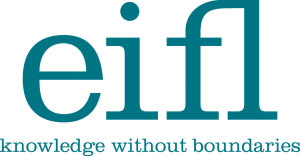 [Electronic Information for Libraries, Link (CC-BY)] The 28th session of the WIPO Standing Committee on Copyright and Related Rights (SCCR) – the main body that shapes international copyright law – failed to reach agreement on the conclusions of its session for the second time this year. It also couldn’t agree during the late evening session on the all-important recommendations to WIPO’s General Assemblies that meet in September.
[Electronic Information for Libraries, Link (CC-BY)] The 28th session of the WIPO Standing Committee on Copyright and Related Rights (SCCR) – the main body that shapes international copyright law – failed to reach agreement on the conclusions of its session for the second time this year. It also couldn’t agree during the late evening session on the all-important recommendations to WIPO’s General Assemblies that meet in September.
EIFL was represented at SCCR/28 that met in Geneva from 30 June – 4 July 2014 by Inta Miklūna, EIFL-IP coordinator in Latvia, and the Legal Advisor at the Culture Information Systems Centre. Following the breakdown of the last session in April, libraries and archives were hopeful that member states could resolve their political differences so that the work of the Committee can move forward. But it wasn’t to be.
Some progress made
To work around the continuing refusal of the European Union and some other countries to discuss “text-based work” on libraries and archives, the Chair asked the US to present its document on objectives and principles for exceptions and limitations for libraries and archives. The discussion focused on Exceptions and Limitations in a Digital Environment with inputs from member states and NGOs. The EIFL statement gave examples of how an international copyright-based document supply service that was replaced with a publisher licensing arrangement resulted in a marked disimprovement for libraries, and a reduction in the availability of information to end users for scholarship and research. Other statements can be found here.
In addition, IFLA hosted a well-attended lunch time event “Keeping copyright relevant in the digital environment: libraries, archives and licences” with speakers from Italy, Brazil and the US explaining how licences are taking away users’ rights under copyright laws.
In other developments, the Secretariat announced that Prof. Kenneth Crews will present an update of the 2008 study on limitations and exceptions for libraries and archives during SCCR/29 in December 2014.
On the agenda item on limitations and exceptions for education and persons with other disabilities, in its statement EIFL called on Member States to make a recommendation to the WIPO General Assemblies that the provisions of the Marrakesh Treaty for blind, visually impaired and otherwise print disabled persons apply equally to persons with other disabilities, so that equal treatment is granted to all persons regardless of their disability.
First ratification of the Marrakesh Treaty
In a historic moment, India became the first country to ratify the Marrakesh Treaty for persons with print disabilities, adopted in Marrakesh one year ago by member states of the World Intellectual Property Organization (WIPO). “We hope other countries will follow India’s lead quickly so the Treaty can enter into force and we begin to see real and tangible benefits for the world’s blind and visually impaired community”, said Dilip Sinha, India’s Permanent Representative to the United Nations in Geneva. The Treaty will take effect after 20 ratifications are presented to WIPO.
The Accessible Books Consortium (ABC) was also launched. ABC supports the objectives of the Marrakesh Treaty through practical initiatives to increase the availability of books in accessible formats, such as capacity building, inclusive publishing and the building of a database for the international exchange of accessible titles.
Another disappointing end
For the second time in a row, the SCCR failed to reach agreement on conclusions and recommendations. In the draft conclusions, there was disagreement over several issues that were on the agenda of SCCR/28, in addition to limitations and exceptions for libraries and archives.
These included a proposed recommendation to the 2014 WIPO General Assemblies to hold a diplomatic conference on broadcasting in 2016 (the African Group, South Africa and India preferred to wait until 2015 to decide); the roadmap for the next three sessions of SCCR (developing countries thought that it was more favourable to broadcasting than to exceptions and limitations); several developing countries asked for inclusion of a reference to an international framework on limitations and exceptions (opposed by the EU and other developed countries). Developing countries also complained about the lack of time allocated to discussion of the agenda item on implementation of the Development Agenda recommendations by SCCR.
What happens next?
Like before, the Chair will issue his own conclusions without recommendations. The WIPO General Assemblies that take place from 22-30 September 2014 will have to try to resolve the impasse, and decide on the future work of SCCR. During this time of prolonged uncertainty, libraries and archives must re-direct their attention toward the General Assemblies.
We hope that the obstacles can be resolved by the ambassadors and diplomats, so that libraries and archives can continue our work at SCCR/29 to help to ensure that the copyright system works for everyone.
Related reading:
WIPO Copyright Committee In Disarray Again; Development Dimension Questioned




